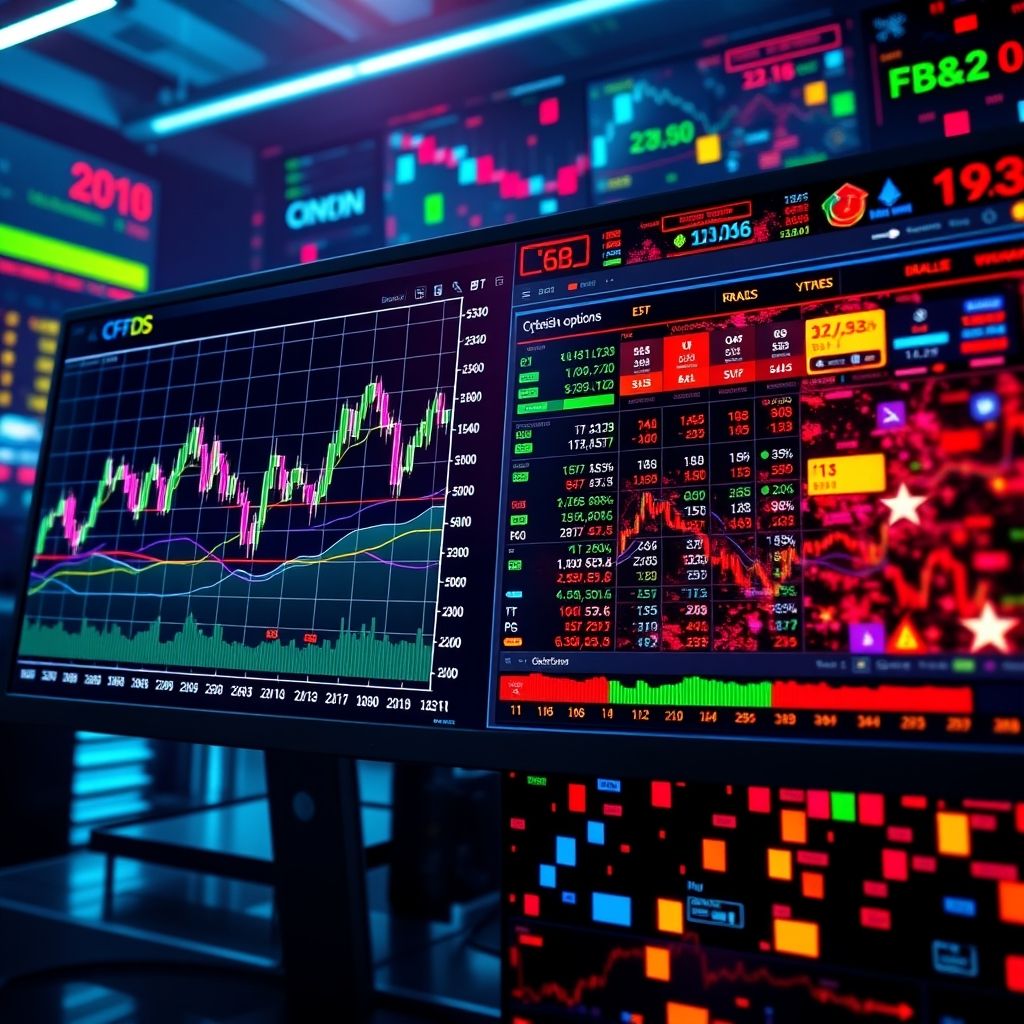How do CFDs differ from options?
How Do CFDs Differ From Options? Understanding the Key Differences in Modern Trading
Imagine walking into a bustling marketplace filled with a variety of financial products, each promising a different way to grow your wealth. Among the most popular are CFDs and options — two tools that can seem similar but serve very different purposes. Whether youre a seasoned trader or just starting to explore the world of modern finance, understanding how CFDs differ from options can open new doors and help you make smarter decisions.

What Are CFDs and How Do They Work?
CFDs, or Contracts for Difference, are essentially agreements between traders and brokers to exchange the difference in the value of an asset from the time the contract opens to when it closes. Think of it as betting on the price movement of a stock, commodity, or currency, without actually owning the underlying asset. If the price goes up, you profit; if it drops, you face a loss.
One of the biggest appeals of CFDs is leverage — you can control a large position with a relatively small amount of capital. Picture it like using a magnifying glass; with a little effort, you can target a much larger area. But beware — leverage amplifies both gains and losses, making risk management crucial.
The Fundamentals of Options: Rights and Strategies
Options, on the other hand, give you the right, but not the obligation, to buy or sell an asset at a set price before a certain expiration date. Think of it as a ticket — you can choose to use it or not, depending on how the market moves. This flexibility allows for strategic plays like hedging against downside risk or speculating on price swings.
Options are often used by investors looking for more sophisticated ways to manage risk or generate income, thanks to their built-in insurance-like features (like the strike price and expiration date). Theyre more about strategic positioning rather than quick bets on price moves.
Key Differences in Function and Usage
| Feature |
CFDs |
Options |
| Ownership |
No, youre trading on price movements |
No, but you have the option to buy/sell the asset |
| Leverage |
Yes, often high leverage |
Usually lower leverage, but depends on the strategy |
| Risk profile |
Potentially unlimited losses with leverage |
Limited risk to the premium paid for options |
| Expiration |
No fixed expiration, can hold positions indefinitely |
Yes, options have set expiration dates |
| Complexity |
Generally simpler to understand and execute |
Can be complex, involving strategies like spreads |
Think of CFDs as a high-speed roller coaster — fast, intense, and requiring constant vigilance. Options are more like a strategic game of chess — calculated moves with potential for big gains, but also complex rules.
Why It Matters in Today’s Web3 and DeFi Landscape
The rise of decentralized finance (DeFi) and Web3 platforms is pushing the boundaries of traditional trading, adding new layers of possibilities. Trading multiple assets — forex, stocks, cryptocurrencies, indices, commodities — becomes easier and more seamless with derivatives like CFDs.
CFDs shine here by offering rapid access with leverage, making them attractive for traders looking to capitalize on short-term volatility, even in the crypto space. But they also come with risks: high leverage, potential for liquidation, and less transparency compared to traditional markets.
Options are gaining ground by providing more strategic options — think of hedging your crypto portfolio or locking in gains — especially when paired with emerging technologies like smart contracts. These automatable agreements can facilitate trustless, transparent options trading, reducing counterparty risk.
Future Trends: Tech, AI, and Decentralization
As the industry moves forward, the integration of AI-driven trading algorithms and decentralized platforms is transforming how we manage risk and execute trades. AI helps analyze market sentiment and predict price movements more accurately, giving traders an edge especially when trading volatile assets like crypto.
Meanwhile, the development of decentralized finance introduces challenges like network security, scalability, and regulatory hurdles. Still, the potential for fully automated, trustless transactions via smart contracts promises a future where trading is faster, safer, and more inclusive.
Navigating with Confidence
Choosing between CFDs and options is less about which is better and more about understanding your risk appetite, strategy, and goals. CFDs might appeal more to those who prefer flexibility and rapid execution, while options attract traders interested in strategic positioning and limited risk.
Remember, in an era where technology meets finance, staying informed is your best advantage. Whether it’s analyzing charts with advanced tools, leveraging AI insights, or exploring the possibilities of decentralized exchanges, the key lies in adaptive, responsible trading.
Trade smarter, not harder — embrace the future of finance where knowledge, technology, and strategy come together.
If youre curious about stepping into this dynamic landscape, understanding these nuances helps set the foundation for success. Your journey into the world of modern derivatives begins with awareness—and theres a whole universe of opportunities waiting.

